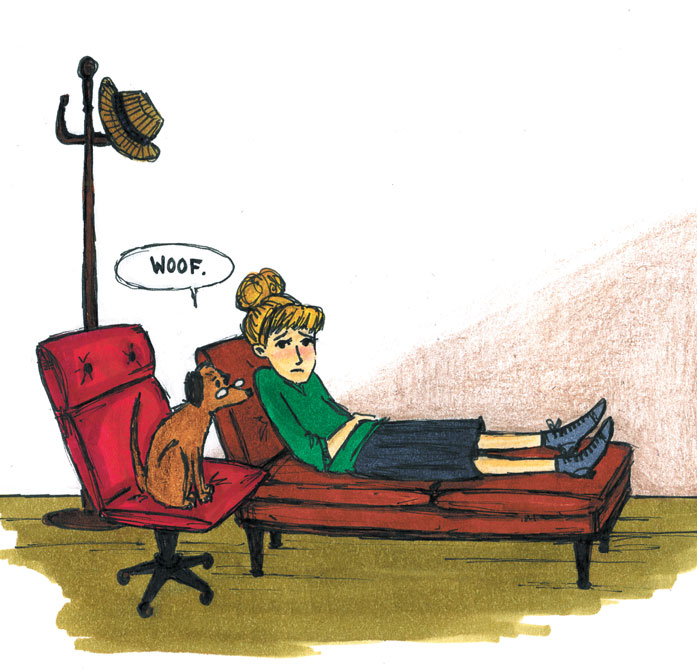
Campus mental-health resources inadequate
By Kaleem Khan, October 2 2014 —
Suicide is one of the leading causes of death among university-aged Canadians. As far as social issues go, it’s more widely discussed now than it was 10 years ago, but that hasn’t translated into quality mental-health services on campus.
Mental health is a medical issue. Our hearts are in the right place, but undergraduate students aren’t mental-health professionals. We don’t have the necessary skills to create programming that will improve the mental health of thousands of students.
Programs like pet therapy, where students spend time with dogs brought to campus, are fun ideas. But there’s no evidence that this will have any lasting effect on students’ mental health. Pet therapy requires consistent extended time periods with animals. An hour waiting in line to spend 10 minutes petting a dog is not what psychologists have in mind.
Another Students’ Union stress-reduction initiative is Open Mic, which is designed to foster community among students. It’s a well meaning event, but events like this bring out students who are already social. Open mic nights cater to students who are looking for a fun time, not students who need qualified advice on mental illness.
Effective mental-health treatments are hard to come by, even off campus with Alberta Health Services. Wait lists for publicly offered mental-health services are long and allow the illness to worsen before treatment.
Students are particularly susceptible to mental illness due to stress and unhealthy lifestyles. It’s hard to stay healthy when you have to write a series of exams and papers each month. Band-aid solutions aren’t good enough. Students require treatments backed by scientific evidence.
The underlying issue here is that mental-health services on campus probably shouldn’t be the responsibility of the SU. And when services on campus are offered by mental-health professionals, they’re spotty at best.
Over the course of their degree, students are offered 10 free counselling sessions. In a four-year degree, this is little more than a couple times a year. This might sound adequate, but the American Psychological Association recommends 14–16 sessions for an episode of severe mental illness. That’s more sessions than you’re given for your entire degree.
Many students are unaware of the availability of these services, which results in students never receiving treatment. If more students used these resources, there would be an incentive for them to expand and improve.
Awareness campaigns help bring student attention to services offered on campus, but there’s still a lot of money and energy going into gimmicky conferences and events. We miss a large part of the conversation when the SU presents themselves as the complete face of mental-health initiatives on campus.
All those mental-health campaigns have helped to increase the amount of discussion we have on campus. The problem now is how we talk about mental health. Once you get past the surface-level discussion, there’s no public discourse on substantive mental-health solutions.
Serious mental-health problems won’t be solved with mellow acoustic guitar music every other month and public art. These ideas are important initiatives that help to build a campus community, but they aren’t real solutions to a medical issue.
Neglecting the issue of mental illness is problematic. Watching your friends embarrass themselves on stage might be a good laugh, but it’s not a treatment.
There aren’t easy solutions, but we can start by acknowledging that what we’re doing now is inadequate. We should lobby university administration and the provincial government to create programming. Continuing to hold conferences might make us feel better, but it won’t make a dent in the problem.
Our general quality of life is important, but it’s not the same issue as mental health. Mental illness shouldn’t be a campaigning point in SU elections. We all deserve better than that.
